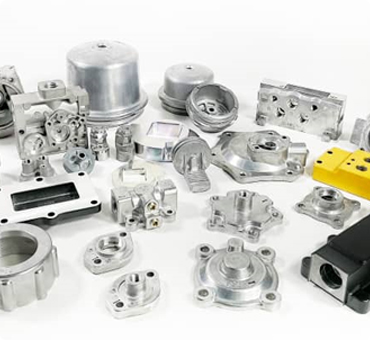Exploring Diecasting in Malaysia: A Growing Industry with Promising Potential

Diecasting, a process of manufacturing intricate metal parts by forcing molten metal into reusable molds, has emerged as a vital industry in Malaysia. With its robust infrastructure, skilled workforce, and strategic location in Southeast Asia, Malaysia has become a preferred destination for diecasting operations. This article delves into the burgeoning diecasting sector in Malaysia, highlighting its key attributes, growth drivers, and prospects.
The Malaysian diecasting industry boasts a diverse range of applications across various sectors, including automotive, electronics, aerospace, and construction. Automotive manufacturers, in particular, leverage diecasting for producing engine components, transmission parts, and structural elements, benefiting from its cost-effectiveness and high precision. Additionally, the electronics sector relies on diecast parts for manufacturing enclosures, heatsinks, and connectors, capitalizing on their durability and thermal conductivity.

One of the significant advantages of precision machining malaysia is the availability of advanced technology and modern infrastructure. Leading diecasting companies in the country invest heavily in state-of-the-art machinery, automated processes, and quality control systems to ensure the production of high-quality parts with minimal defects. This technological prowess, coupled with stringent quality standards, positions Malaysia as a competitive player in the global diecasting market.
Moreover, Malaysia’s strategic location within the ASEAN region offers logistical advantages for diecasting manufacturers. With well-established transportation networks and proximity to key markets such as China, India, and Australia, Malaysian diecasting firms can efficiently serve both domestic and international clients. This geographical advantage enhances the industry’s competitiveness and enables seamless supply chain management, contributing to its overall growth and sustainability.
In recent years, the Malaysian government has implemented various initiatives to support the development of the diecasting sector. These initiatives include tax incentives, research grants, and skills training programs aimed at enhancing the industry’s technological capabilities, promoting innovation, and fostering talent development. Such government support has attracted foreign investments and encouraged local companies to expand their operations, driving further growth and innovation in the sector.
Looking ahead, the future of diecasting in Malaysia appears promising, fueled by emerging trends such as lightweight, electric vehicle (EV) adoption, and Industry 4.0 integration. As global industries increasingly prioritize sustainability and efficiency, diecasting materials such as aluminum and magnesium are gaining traction due to their lightweight properties and recyclability. Additionally, the rise of EVs is expected to create new opportunities for diecasting manufacturers, as electric vehicles require specialized components that can be efficiently produced through diecasting processes.
